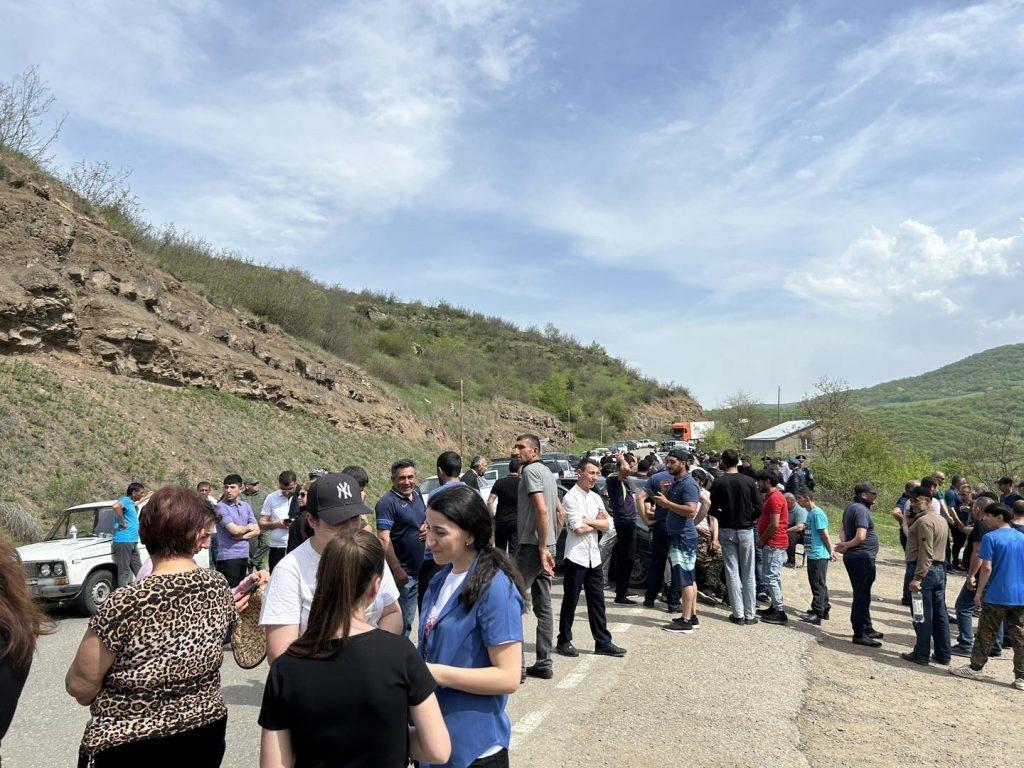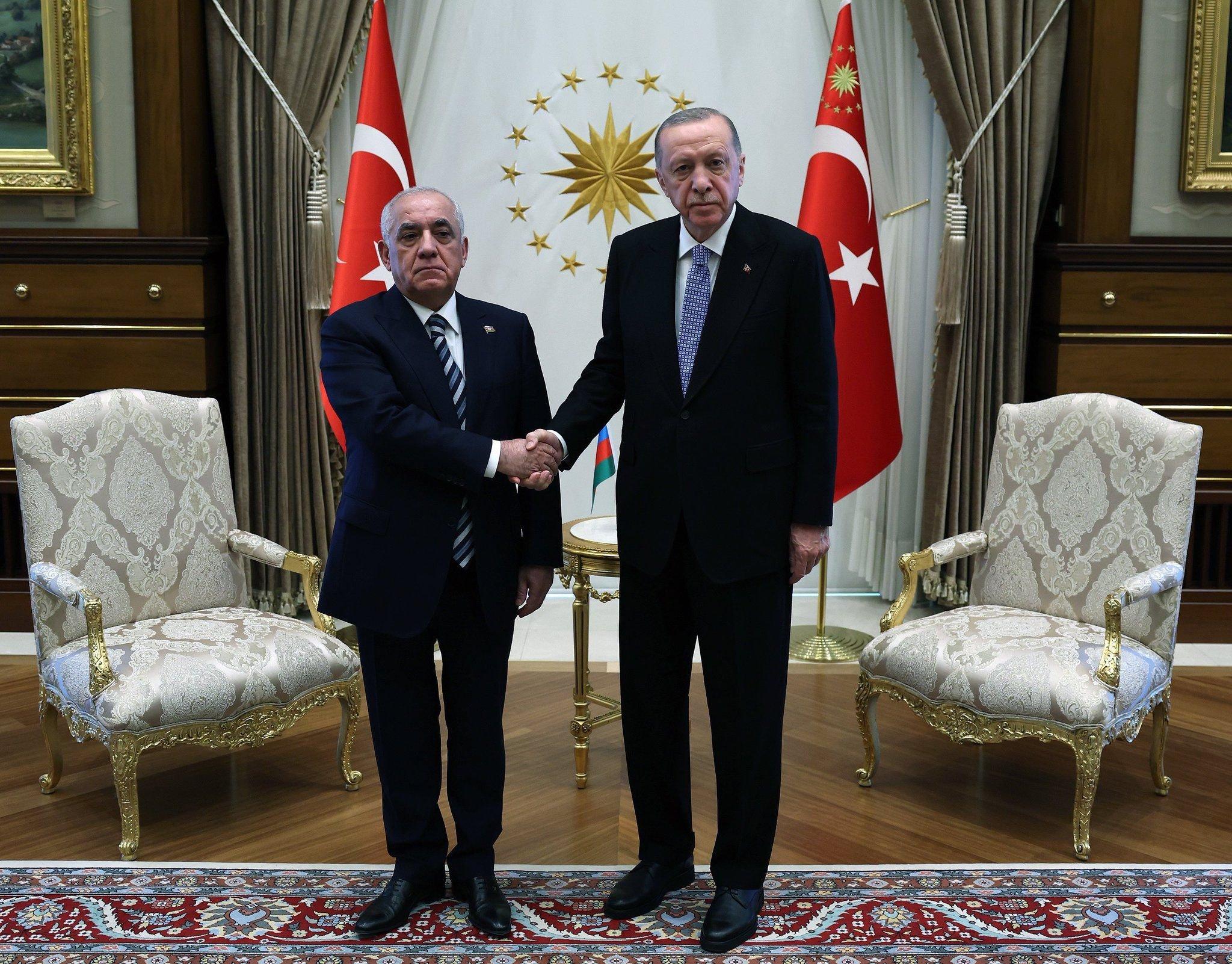Amid rising calls for Azerbaijani-Armenian peace accord Türkiye's president urges swift action
Armenia finds itself at a pivotal juncture, grappling with internal divisions and external pressures that underscore deep-seated societal challenges. Recent events reflect a broader struggle within Armenian society to distinguish between constructive change and entrenched delusions of grandeur.
The inability to discern right from wrong has historically plagued Armenia, leading to a cycle of self-inflicted misfortunes. As the country faces pivotal decisions, including the need to realign with global norms and regional dynamics, the stakes are high.
For four years, Armenia has had a crucial opportunity to re-evaluate its trajectory, shedding the burden of corruption and embracing a path towards genuine progress. However, this introspection seems elusive, risking the very fabric of the Armenian state.
Prime Minister Nikol Pashinyan, keenly aware of these challenges, advocates for a pragmatic approach, urging his compatriots to prioritize the tangible development of Armenia over abstract claims of a mythical past. Yet, his efforts are facing formidable obstacles.
The aftermath of the peace agreement continues to reverberate, revealing stark realities about Armenia's place in the international and regional platforms. Fundamental constitutional reforms are imperative, requiring Armenia to align its legal framework with global standards.

The fundamental question persists: Does Armenia genuinely seek peaceful coexistence with its neighbors, or does it cling to outdated grievances and animosities? The answer hinges on collective action to embrace change.
Armenia's failure to unite in addressing its core challenges portends further turmoil and regional instability. The absence of broad support for radical elements signifies a divided society grappling with its identity.
The upcoming events, notably the protests against the delimitation and demarcation, underscore deeper fissures within Armenian society. Radical factions exploit nationalist sentiments, vilifying Pashinyan and distorting the discourse to serve their agenda.
The juxtaposition of historical symbolism, such as Victory Day on May 9, against present-day extremism highlights Armenia's struggle to reconcile its past with a rapidly evolving geopolitical landscape.
In essence, Armenia stands at a crossroads, where each development serves as a litmus test for governance and societal resilience. Observers must remain vigilant, as Armenia navigates these turbulent waters, and draw meaningful insights from the unfolding narrative. The future of Armenia and its regional relations depend on the choices made in these critical moments.

Assessing Armenia's imperative for signing a final peace agreement with Azerbaijan
Armenia stands at a critical juncture, facing mounting pressures to secure a final peace agreement with Azerbaijan. The urgency stems from shifting geopolitical dynamics and internal imperatives that demand decisive action from Yerevan.
In recent months, the South Caucasus region has entered a phase nearing resolution, marked by the ascendance of Azerbaijan's geopolitical influence. The global giants, including the USA, Russia, and Western powers, have recalibrated their strategies in response to Azerbaijan's assertive position. This shift underscores the region's transformation under Azerbaijan's geopolitical sway.
Azerbaijan's diplomatic maneuvers, notably its engagement with the Kremlin resulting in the withdrawal of Russian peacekeeping forces, exemplify Baku's growing influence. Furthermore, Azerbaijan's resolute stance against Western provocation has compelled a reassessment of Western policies vis-à-vis Azerbaijan.
Armenia, in contrast, finds itself increasingly isolated, grappling with the realization that Western support is not a panacea for its regional challenges. Prime Minister Nikol Pashinyan's government acknowledges the imperative of direct engagement with Azerbaijan to resolve longstanding disputes.
The border delimitation process, viewed by Yerevan as essential for Armenia's security, reflects a pragmatic shift. Armenia's recent return of four Azerbaijani villages highlights a tangible step towards normalization, despite internal resistance within Armenia.
Prime Minister Pashinyan's resilience in the face of internal pressures underscores Armenia's commitment to pursuing diplomatic solutions over resignation. Pashinyan's stance aligns with Armenia's broader strategic imperative to secure its future amidst evolving geopolitical tides.
Armenia's strategic calculation factors in the upcoming US elections, recognizing the potential shift in American policies post-election. The Biden administration's engagement with Armenia is viewed through the lens of electoral dynamics, amplifying Yerevan's sense of urgency to solidify relations with Azerbaijan.
The rhetoric from Armenian officials, including Parliament Speaker Alen Simonyan, underscores Yerevan's readiness to pursue a final peace agreement. The absence of significant disagreements with Azerbaijan signals Armenia's untested yet eagerness to embrace diplomatic solutions.
However, Armenia's window for decisive action narrows amid looming uncertainties, notably the potential re-election of Donald Trump. A Trump victory could marginalize the "Armenian factor" in US policies, leaving Armenia vulnerable to diplomatic isolation.
In essence, Armenia confronts a pivotal moment, wherein failure to engage decisively with Azerbaijan risks diminishing its international relevance. The imperative for Yerevan is clear: seize the opportunity to sign a final peace agreement before geopolitical conditions shift irreversibly against its interests. Failure to act decisively could consign Armenia to a future of diplomatic marginalization and insecurity in the South Caucasus.
Turkish president calls for swift Azerbaijani-Armenian peace accord
Turkish President Recep Tayyip Erdogan emphasized the urgent need for a peace agreement between Azerbaijan and Armenia during a meeting with Azerbaijani Prime Minister Ali Asadov in Ankara.

President Erdogan highlighted the importance of achieving stability in the region through a comprehensive peace accord. Expressing satisfaction with the progress in discussions between Baku and Yerevan, Erdogan anticipated positive outcomes from the upcoming meeting of the foreign ministers of Azerbaijan and Armenia, Jeyhun Bayramov and Ararat Mirzoyan, scheduled to take place in Almaty on May 10.








